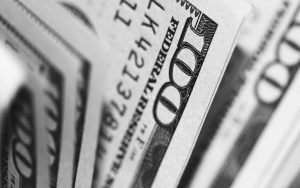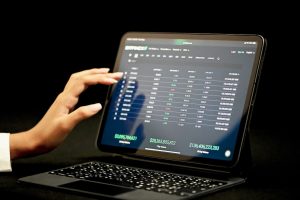Forex trading is a decentralized global market where currencies are traded on a 24-hour basis. The forex market is the largest and most liquid financial market in the world, with an average daily turnover of over $6 trillion. The forex market is open to everyone, including banks, corporations, and individual traders. In this article, we will explore how to trade forex with banks.
Banks are the largest players in the forex market, accounting for over 50% of the daily turnover. They trade on behalf of their clients, including corporations, hedge funds, and other financial institutions. Banks also trade for their own accounts, using their huge capital to profit from currency movements.
Trading forex with banks offers several advantages over trading with other market participants. Firstly, banks have access to vast amounts of information and research, which they use to make informed trading decisions. Secondly, banks have the ability to execute large orders efficiently, without causing significant price movements in the market. Finally, banks have access to the interbank market, which offers the best prices and liquidity.
To trade forex with banks, you need to have a trading account with a bank that offers forex trading services. Most major banks offer forex trading, including Citibank, J.P. Morgan, and Deutsche Bank. To open a trading account, you will need to provide identification documents and proof of address. You will also need to deposit funds into your trading account, which can be done via bank transfer or credit/debit card.
Once your trading account is set up, you can start trading forex with the bank. You will have access to a trading platform, which allows you to place orders and monitor your positions. The trading platform will also provide you with real-time market data and analysis, which you can use to make informed trading decisions.
To trade forex with banks, you need to have a good understanding of the forex market and how it works. You also need to have a trading strategy that is based on sound principles and is appropriate for your risk tolerance and investment objectives. Some of the key factors to consider when trading forex with banks include:
1. Market analysis: You need to have a good understanding of the factors that drive currency movements, including economic indicators, political events, and market sentiment. You should also be able to analyze technical charts and identify key support and resistance levels.
2. Risk management: You need to have a clear plan for managing your risk, including setting stop-loss orders and using appropriate position sizing. You should also be aware of the risks associated with trading forex, including leverage, counterparty risk, and market volatility.
3. Trading strategy: You need to have a trading strategy that is based on sound principles and is appropriate for your risk tolerance and investment objectives. This may include strategies such as trend following, breakout trading, or mean reversion.
4. Execution: You need to be able to execute your trades efficiently and at the best possible prices. This may involve using limit orders, market orders, or other advanced order types.
Trading forex with banks can be a lucrative and rewarding experience, but it requires skill, discipline, and a sound trading strategy. By following the guidelines outlined in this article, you can increase your chances of success and achieve your trading goals.





